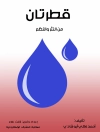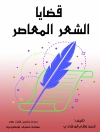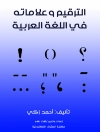This volume investigates energy as a shaping force in Russian and Soviet literature, visual culture, and social practice. Chronologically arranged chapters explain how nineteenth-century ideas about energy informed realist novels and paintings; how the poetics of energy defined pre-Revolutionary and Stalinist utopianism; and how fossil fuels, electricity, and nuclear fission generated distinct aesthetic features in Imperial Russian, Soviet, and post-Soviet literature, cinema, and landscape. The volume’s concentration on Russia responds to a clear need to understand the role the country plays in social, political, and economic processes endangering life on Earth today. The cultural dimension of Russia’s efforts at energy dominance deserves increased scholarly attention not only in its own right, but also because it directly affects global energy policy. As the contributors to this volume argue, the nationally inflected cultural myths that underlie human engagements with energyhave been highly consequential in the Anthropocene.
shortlisted for AATSEEL’s Best Edited Multi-Author Scholarly Volume for 2023
İçerik tablosu
1 Introduction: Energy Culture in Russia and the Soviet Union.- 2 The Energy of Chernyshevsky’s Vera Pavlovna in the Modern Cultural Economy.- 3 The Energy Trap:
Anna Karenina as a Parable for the Twenty-First Century.- 4 Picturing Coal in the Donbas: Nikolai Kasatkin and the Energy of Late Realism.- 5 Polar Fantasies: Valery Bryusov and the Russian Symbolist Electric Aesthetic.- 6 Energetic Liquids in Pre-Revolutionary Russian Utopianism.- 7 Revolutionary Burnout and the Rise of the Soviet Rest Regime.- 8 The Mechanics and Energetics of Soviet Communism: The Poetics of Peat.- 9 Leonid Brezhnev and the Elixir of Life.- 10 Russian Oil: Tragic Past, Radiant Future, and the Resurrection of the Dead.- 11 Of Mice and Degenerators: Post-progress Energy and Posthuman Bodies in Tatyana Tolstaya’s
The Slynx.- 12 Hydrocarbons on Hold: Energy Aesthetics of Teriberka inthe Russian Arctic.- 13 Afterword on
Chernobyl (2019): A Soviet Propaganda Win Delivered 33 Years Late.
Yazar hakkında
Jillian Porter is Associate Professor in the Department of Germanic and Slavic Languages and Literatures at the University of Colorado Boulder, USA. She is the author of Economies of Feeling: Russian Literature under Nicholas I (2017) and has published essays on money, commodities, and the queue in Russian and Soviet literature and cinema.
Maya Vinokour is Assistant Professor in the Department of Russian and Slavic Studies at New York University, USA. She studies Stalinist labor culture, late-Soviet science fiction, and post-Soviet media.












